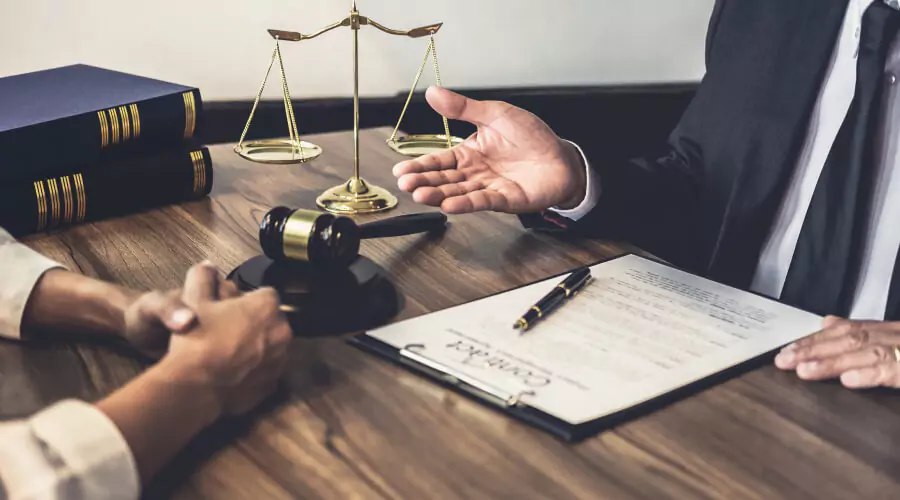Case Pro Practice Areas
Case Pro Practice Areas
Law Firm with relevant Case Studies!
Case Pro Lawyers demonstrate client acquisition & retention rates above average industry standards. Request a

Civil Law
Justice, Advocacy, and Protection—Your Trusted Civil Law Partner
Legal disputes can be overwhelming, but with the right legal team by your side, justice is within reach. At Case Pro Lawyers, we provide compassionate, strategic, and results-driven representation for individuals and businesses facing civil legal matters. Whether you’re navigating a contract dispute, seeking compensation for damages, or defending your rights, our skilled civil law attorneys are here to advocate for you.
Civil law governs the fundamental aspects of our daily lives—contracts, property rights, family matters, personal injury claims, and business conflicts. Our firm is committed to ensuring that your rights are protected, your interests are safeguarded, and justice is served. We take a client-centered approach, tailoring our legal strategies to your unique circumstances and fighting relentlessly for the best possible outcome.
From negotiation and mediation to litigation, we are your unwavering legal advocates.
Let us help you navigate the complexities of civil law with confidence and clarity. Contact us today for a consultation.
Key Aspects of Civil Law
Civil law is a broad legal field that governs private disputes between individuals, organizations, or government entities. Unlike criminal law, which focuses on offenses against the state, civil law deals with conflicts involving rights, responsibilities, and legal relationships between parties. The primary aim of civil law is to provide remedies, typically in the form of monetary compensation or specific actions, rather than imposing criminal penalties like imprisonment.
Civil law covers a wide range of legal matters, including contracts, property disputes, family law, personal injury, employment law, and business litigation. It establishes rules and principles that guide how individuals and entities interact, ensuring fairness, justice, and the protection of legal rights.
Contract Law
Contract law governs legally binding agreements between parties. When one party fails to fulfill their contractual obligations, the other party may seek legal remedies such as:
-
Damages (compensation) for financial loss.
-
Specific performance, requiring the breaching party to fulfill their obligations.
-
Contract termination due to breach or misrepresentation.
Common disputes include:
-
Breach of contract in business transactions.
-
Failure to deliver goods or services as agreed.
-
Disputes over contract interpretation.
Well-drafted contracts help prevent misunderstandings and protect parties from legal disputes.
Property Law
Property law covers ownership, use, and transfer of real estate and personal property. It includes:
-
Real estate transactions (buying, selling, leasing property).
-
Boundary disputes and land ownership conflicts.
-
Landlord-tenant disputes, including eviction and lease violations.
-
Easements and zoning laws, which govern property use.
Property law ensures that ownership rights are respected and legally protected.
Family Law
Family law governs legal relationships between family members, including:
-
Marriage, divorce, and annulments.
-
Child custody, visitation rights, and child support.
-
Alimony (spousal support) and division of marital assets.
-
Adoption and guardianship.
-
Domestic violence protection orders.
Family law seeks to balance legal obligations with fairness and the best interests of family members, particularly children.
Personal Injury Law (Tort Law)
Personal injury law (a key area of tort law) protects individuals who have been harmed due to the negligence or wrongful actions of others. It includes:
-
Car accidents and motor vehicle injuries.
-
Slip-and-fall accidents and premises liability.
-
Medical malpractice and healthcare negligence.
-
Product liability (injuries from defective products).
-
Wrongful death lawsuits.
Victims can seek compensation for medical expenses, lost wages, pain and suffering, and other damages.
Employment and Labor Law
Employment law protects the rights of employees and employers, addressing issues such as:
-
Workplace discrimination and harassment (race, gender, age, disability).
-
Wrongful termination and retaliation claims.
-
Wage and hour disputes, including unpaid overtime.
-
Employment contracts and severance agreements.
-
Whistleblower protections.
Employers must comply with federal and state labor laws to ensure fair treatment of workers and avoid legal liability.
Business and Commercial Law
Business law regulates commercial transactions, corporate governance, and business operations. It includes:
-
Partnership and shareholder disputes.
-
Breach of fiduciary duty cases.
-
Business torts, including fraud and unfair competition.
-
Intellectual property disputes (trademark, copyright, and patent infringement).
-
Consumer protection laws, which prevent deceptive business practices.
Civil law helps businesses operate legally and resolve disputes without resorting to criminal proceedings.
Defamation and Privacy Law
Defamation law protects individuals and businesses from false and damaging statements. This includes:
Libel (written defamation) and slander (spoken defamation).
Invasion of privacy cases, including unauthorized publication of personal information.
Plaintiffs in defamation cases must prove false statements caused reputational harm.
Probate and Estate Law
Probate law governs estate planning and the distribution of a deceased person’s assets. It includes:
-
Wills and trusts, ensuring assets are distributed according to a person’s wishes.
-
Estate administration, handling debts, taxes, and inheritance.
-
Disputes over inheritance, including will contests.
Proper estate planning prevents legal conflicts among heirs and ensures compliance with tax laws.
How Civil Law Cases Are Resolved
Civil cases can be resolved through:
-
Negotiation: Informal discussions to reach a settlement.
-
Mediation: A neutral third party helps parties reach a voluntary agreement.
-
Arbitration: A binding or non-binding decision made by an arbitrator.
-
Litigation: A formal lawsuit in court, where a judge or jury determines the outcome.
Most civil disputes settle out of court, but litigation remains an option if a fair resolution cannot be reached.
Conclusion
Civil law plays a crucial role in protecting individual and business rights, ensuring fair treatment, and resolving disputes without resorting to criminal penalties. Whether dealing with contract issues, personal injury claims, family disputes, or property matters, civil law provides a framework for seeking justice and enforcing legal obligations.
If you need legal assistance in a civil matter, consult an experienced civil law attorney to understand your rights and options. Would you like this tailored for a specific audience, such as businesses, individuals, or legal professionals?


A civil lawyer handles non-criminal legal disputes between individuals, businesses, or organizations. They represent clients in matters such as contract disputes, personal injury claims, property issues, family law cases, and employment disputes. Civil lawyers provide legal advice, draft documents, negotiate settlements, and litigate cases in court when necessary.
You should consult a civil lawyer if you are:
Suing someone or being sued in a legal dispute.
Involved in a contract disagreement that needs resolution.
Injured due to someone else’s negligence and seeking compensation.
Dealing with property or landlord-tenant issues.
Going through a divorce or child custody battle.
Facing workplace disputes, discrimination, or wrongful termination.
Needing assistance with estate planning, wills, or trusts.
Early legal consultation can prevent costly mistakes and protect your rights.
Civil cases involve private disputes where the plaintiff seeks compensation or a legal remedy, whereas criminal cases involve the government prosecuting individuals for crimes.
| Aspect | Civil Case | Criminal Case |
|---|---|---|
| Plaintiff | Individual, business, or organization. | The government (prosecutor). |
| Defendant | Another individual, business, or entity. | An accused individual. |
| Outcome | Compensation, injunctions, or specific performance. | Fines, probation, or jail time. |
| Burden of Proof | Preponderance of evidence (more likely than not). | Beyond a reasonable doubt. |
Filing a civil lawsuit generally involves the following steps:
Consultation: Meet with a civil lawyer to assess your case.
Filing a Complaint: The plaintiff files a formal complaint outlining their claims.
Serving the Defendant: The defendant receives legal notice of the lawsuit.
Pre-Trial Proceedings: Both sides exchange evidence and may try to settle.
Trial: If no settlement is reached, the case is presented in court.
Judgment: The judge or jury decides the outcome.
Appeals (if necessary): Either party may appeal the decision if there are legal grounds.
Many cases settle before trial to save time and costs.
The duration varies based on case complexity, court backlog, and settlement negotiations. Some cases resolve in a few months, while others can take years if they go to trial. Settlement negotiations can often expedite resolution.
Civil lawyers typically charge in one of the following ways:
Hourly rates – Clients pay for the time spent on their case.
Flat fees – A fixed amount for specific legal services.
Contingency fees – The lawyer only gets paid if you win (common in personal injury cases).
Retainer fees – An upfront payment for ongoing legal representation.
Discuss payment structures with your lawyer before hiring them.
Yes, many civil disputes are resolved through negotiation, mediation, or arbitration before reaching trial. Settlements can save time, legal expenses, and stress, while still providing a fair resolution.
If you lose a civil case, you may have to:
Pay damages or other financial compensation.
Comply with court orders, such as returning property or performing specific actions.
File an appeal, if there are legal grounds to challenge the ruling.
A lawyer can advise you on post-judgment options.
If you’re injured due to someone else's negligence, you can file a personal injury lawsuit seeking compensation for:
Medical expenses
Lost wages
Pain and suffering
Property damage
Most personal injury cases settle out of court, but if necessary, a lawyer will litigate to secure fair compensation.
If you receive a lawsuit notice:
Do not ignore it – missing deadlines can result in a default judgment against you.
Contact a civil lawyer immediately to understand your rights.
Gather all relevant documents and evidence.
Prepare a defense or explore settlement options.
An experienced lawyer can help you respond appropriately and minimize potential liabilities.
The statute of limitations varies by case type and jurisdiction. Some general timelines include:
Personal injury – 2 to 3 years
Contract disputes – 4 to 6 years
Property disputes – 3 to 10 years
If you miss the deadline, you may lose your right to sue. Always consult a lawyer as soon as possible.
To protect yourself legally, you should have:
Contracts for business transactions and agreements.
Wills and estate planning documents.
Non-disclosure agreements (NDAs) for confidentiality protection.
Employment agreements for workplace clarity.
Lease or rental agreements if you own or rent property.
A civil lawyer can draft and review legal documents to ensure they are enforceable.
An injunction is a court order requiring someone to do or stop doing something. It is used to prevent harm or ongoing legal violations before a trial concludes.
Contract disputes are resolved through:
Negotiation: Direct discussions to settle the issue.
Mediation: A neutral third party helps find a resolution.
Arbitration: A legally binding decision from an arbitrator.
Litigation: A lawsuit if no agreement is reached.
A lawyer ensures your contractual rights are upheld.
Consider these factors:
Experience in your type of case (e.g., personal injury, contracts, family law).
Track record of success in settlements and litigation.
Communication skills and responsiveness.
Fee structure that fits your budget.
Client reviews and reputation.
Schedule a consultation to discuss your needs before making a decision.
Talk to a licensed lawyer – get your case reviewed and placed with the right attorney. Case Pro Lawyers and associates have the highest win rates in the industry. NO RECOVERY NO FEE
